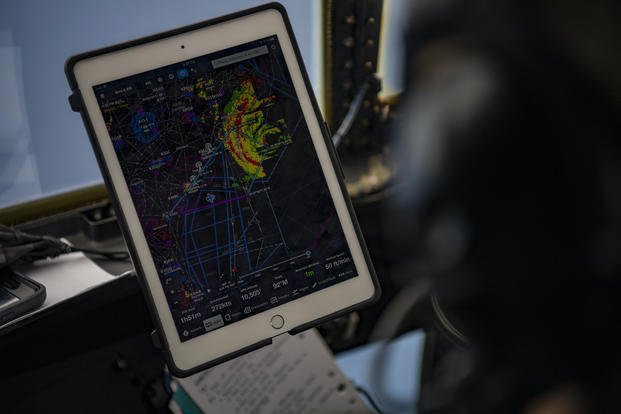Adios landlocked living -- you just got orders to an installation on the coast. But coastal living isn't all flip-flops and sunscreen. It's important to understand one of Mother Nature's most violent storms -- the hurricane -- because living on the coast makes you a target.
Cyclone, typhoon, hurricane. Although the name changes by location, this is one violent storm. Not only can it bring severe winds up to 155 miles per hour and heavy rainfall, it can also cause flash flooding, storm surges, thunderstorms and rip currents.
The good news is that hurricanes give plenty of warning. Find out how you can prepare before a hurricane makes landfall near you.
It might be hard to imagine what hurricane-force winds are capable of if you've never experienced them firsthand. You could face:
- Category 1 — roof and siding damage, downed tree limbs, power outages lasting several days
- Category 2 — major roof and siding damage, uprooted trees, roads blocked by debris, power outages lasting weeks
- Category 3 — partial roof and exterior wall destruction, snapped and uprooted trees, electricity and water outages lasting weeks
- Category 4 — roof and wall destruction, snapped and uprooted trees, power outages lasting months, likely uninhabitable for weeks to months
- Category 5 — total destruction of framed buildings, power outages lasting months, likely uninhabitable for a period of time
No matter which coast you're on or what these storms are called near you, take them seriously.
Prepare now
The Atlantic hurricane season runs from June to November, while the eastern Pacific season stretches from May 15 to Nov. 30. Survival gear can be scarce under hurricane watches or warnings and both shelter locations and evacuation routes fill up quickly.
Planning is critical to survival. Know what actions to take if a hurricane warning is issued, and how to respond in the aftermath of its impact by creating a family emergency plan. Create an emergency preparedness plan now, so you'll be ready to act without wasting a second:
- Be informed. At each new duty station, military families should become familiar with the potential disasters that might occur in that area.
- Learn the emergency communication plans, warning procedures, evacuation routes and shelter locations near you.
- Keep important contacts handy, including your children's school, utilities and emergency services.
- Prepare an emergency kit and be sure it’s always stocked.
- Create and review your family's emergency plan.
- Make plans for your pets.
- Use technology to stay safe.
- Create a home inventory and review insurance policies.
Before a hurricane
When a hurricane watch is issued for your area, conditions are favorable for a hurricane. A hurricane warning means that the storm is likely on its way to you within 36 hours. In either event, start preparing as soon as possible:
- Pay attention to voluntary and mandatory evacuation notices. Be ready to leave or move to a shelter location quickly.
- Fill your car’s gas tank.
- Withdraw cash in case of an extended power outage.
- Cover your windows with 5/8-inch plywood. Tape will not stop windows from breaking.
- Trim trees, clean gutters, and bring in outdoor furniture, plants, toys and equipment. Secure items too large to be moved. Offer help to neighbors making the same preparations.
During a hurricane
If you've made the choice to hunker down and ride out the storm at home, be ready for everything from power outages to boredom:
- Turn your refrigerator and freezer to the coldest settings and keep doors closed to preserve food as long as possible.
- Keep flashlights handy.
- Charge cell phones before you lose power, and use them sparingly.
- Fill your bathtub with water so you have clean water for cleaning or flushing toilets should you lose water access.
- Set up "camp" in a secure, interior area of your house away from glass doors and windows.
- Find a few activities for each of your family members that don't require electricity.
- Tune in to weather updates as often as possible.
- Don't try to move to another location in the middle of the storm. Roads could be blocked by water or debris.
After a hurricane
Proceed with caution following a hurricane. You'll want to assess the damage and begin clean up as soon as possible when the all-clear comes in, but beware of:
- Downed power lines
- Flooded roads
- Contaminated water or spoiled food
- Displaced wildlife
- Structural damage to your home
- Gas leaks
- Aid and home repair scams
Planning is critical to minimize risks. Know what actions to take if a hurricane warning is issued, and how to respond in the aftermath of its impact by creating a family emergency plan. Prepare early, make a plan, and turn to Military OneSource and other emergency resources to get you through the storm and the stress it can bring. When you've done your hurricane homework, all you have left to do is enjoy life on the coast, knowing you're prepared.



























